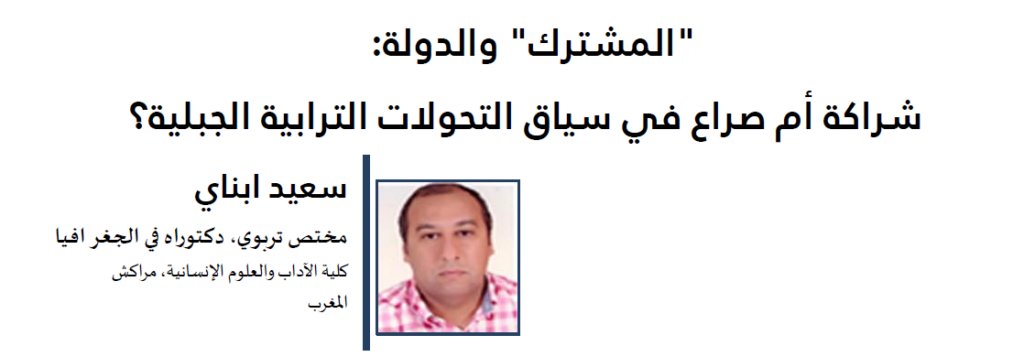“المشترك” والدولة: شراكة أم صراع في سياق التحولات الترابية الجبلية؟

مختص تربوي، دكتوراه في الجغرافيا كلية الآداب والعلوم الإنسانية، مراكش المغرب
ملخص
يتناول المقال دور "المشترك" والدولة في المناطق الجبلية، حيث يبرز "المشترك" كنظام جماعي مستدام يضمن التضامن المحلي وإدارة الموارد مثل المياه والغابات. ومع التحولات الاقتصادية والاجتماعية والبيئية الحديثة، تراجعت أنماط التدبير التقليدي لصالح السوق والخوصصة، مما خلق تحديات جديدة. يناقش المقال إمكانية تحقيق توازن بين تدخل الدولة والحفاظ على الخصوصيات المحلية، مع تعزيز التعاون بين الفاعلين المحليين والجمعيات لضمان استدامة الموارد. حيث يشدد هذا المقال على أهمية دور الدولة كشريك استراتيجي يدعم "المشترك" من خلال سياسات تشاركية تعزز التنمية المستدامة.
The article explores the role of common resources and the state in mountainous regions, highlighting the "commons" as a sustainable collective system that ensures local solidarity and the management of resources such as water and forests. With recent economic, social, and environmental transformations, traditional management practices have declined in favor of market-driven approaches and privatization, leading to new challenges. The article discusses the potential to balance state intervention with the preservation of local characteristics while promoting collaboration between local actors and associations to ensure resource sustainability. It emphasizes the importance of the state's role as a strategic partner supporting the "commons" through participatory policies that foster sustainable development.
كلمات مفتاحية: المشترك، تدخل الدولة، إدارة الموارد، الترابات الجبلية، التحولات الاجتماعية والاقتصادية، التنمية المستدامة.
Keywords : The commons, state intervention, resource management, mountainous regions, socio-economic transformations, sustainable development.
